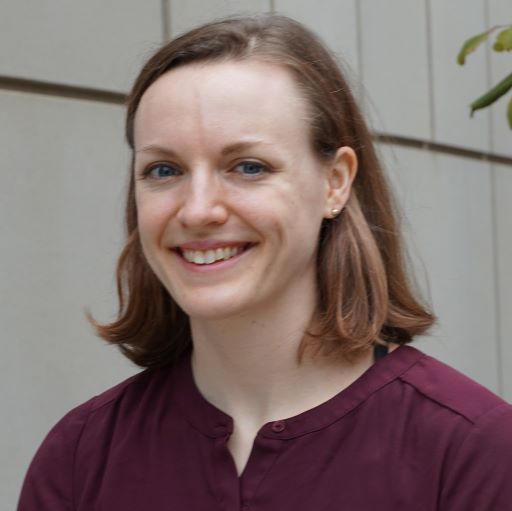|
|
Posted By APTR,
Thursday, September 7, 2023
|
Patrick Dideum, MD

Preventive Medicine residency brings the opportunity to bring my early career of database administration and data analysis with my current career as an Air Force pediatrician. Through pursuit of the Public Health Informatics certificate, I want to hone my previous information systems training with my medical training to develop, deploy, test, and monitor data-driven solutions to positively affect the health of populations.
I pursued a rotation at AHRQ to gain experience at a federal, non-military agency and understand the roles of the many other agencies under the Department of Health and Human Services. As one of these agencies, AHRQ provided a superb environment to understand how evidence-based recommendations are generated starting with thoughtful research plans through final recommendations. I was able to observe the operations of several subcommittees working to refine the USPSTF approaches and methodologies which furthered my appreciation and understanding of the recommendation process. I plan to use this experience to guide my future Preventive Medicine practice and will be an advocate for the efforts within AHRQ and a promoter of USPSTF recommendations.
Tags:
Preventive Medicine; AHRQ Resident Program
Permalink
|
|
|
Posted By APTR,
Monday, August 7, 2023
|
|
Nadia Saif, MD, MPH
University of Maryland Baltimore | Preventive Medicine Residency Program

I chose to pursue Preventive Medicine training after completing my Family Medicine residency because of my desire to supplement my clinical training with public health skills. I love data and hoped to gain the skills to appropriately use data and numbers to contribute to population health impact in my future career.
I chose to complete a residency rotation at AHRQ to gain a greater understanding of critical appraisal of evidence and how evidence informs the clinical preventive services recommendations that we use in primary care. During my rotation, I had an in-depth look at how the USPSTF formulates clinical preventive services recommendations, from choosing topics to review and creating research plans through dissemination of final recommendations. I learned about the role of AHRQ in coordinating the USPSTF, and AHRQ's collaborations with various partners. I participated in several projects and initiatives during my rotation, including: performed a fact check for consistency and accuracy for a draft recommendation; created presentation slides that review a final recommendation for use by USPSTF members at an upcoming partner meeting; critically appraised a recently published article relevant to a clinical prevention topic and presented this to AHRQ medical officers.
My experience at AHRQ also provided an in-depth look at the workings of a federal agency and reinforced my interest in governmental public health as a future career path due to ability to do work that affects public health policy.
Learn more about the APTR-AHRQ Preventive Medicine Residency Program
|
Tags:
AHRQ Resident Program
Preventive Medicine
Residents
Permalink
|
|
|
Posted By Association for Prevention Teaching and Research,
Wednesday, May 3, 2023
Updated: Tuesday, May 2, 2023
|
Afua Takyi, MD, MS, MPH
University of North Carolina at Chapel Hill | Preventive Medicine Residency Program

I chose Preventive Medicine because of my passion for public health and desire to guide awareness and change at a population-based level while focusing on maternal health, racial and health disparities in underserved communities, education, patient advocacy, clinical prevention, and research. My unique training allows me to practice full-scope public health and clinical medicine.
The APTR-AHRQ/USPSTF rotation was an invaluable experience and an excellent opportunity to learn the rigorous methodology of developing the USPSTF recommendation statements. I have a much deeper appreciation and understanding of this comprehensive process. During my rotation, I was involved in several projects, including drafting presentation slides to support AHRQ leadership in a national meeting, critically appraising literature and presenting on a randomized controlled trial to AHRQ medical officers to inform USPSTF recommendations, and completing several fact-checks to ensure the accuracy of the evidence in draft recommendation statements during the development process. I gained in-depth knowledge of the diverse draft prevention topics. During resident rounds, my AHRQ preceptor and the other medical officers provided great mentorship on synthesizing evidence accurately and critically when evaluating recommendation statements. I am very thankful to have worked with such an incredible and collaborative team that significantly supports the US Preventive Services Task Force's work.
I was fortunate to participate in the USPSTF meeting calls and gain insight into how the evidence is judiciously evaluated, reviewed, and prioritized for draft recommendations. It was also a remarkable experience to attend the USPSTF meeting in-person and witness firsthand the tremendous preparation and dedication that goes into each recommendation statement serving our nation and guiding clinicians!
Learn more about the APTR-AHRQ Preventive Medicine Residency Program
Tags:
AHRQ Resident Program
Preventive Medicine
Permalink
|
|
|
Posted By APTR,
Friday, April 7, 2023
|
Siri Chirumamilla, MS, DO

Some of the projects that I was able to participate in during my rotation were reviewing public comments about draft recommendations on prevention topics, critically appraising literature, and contributing to plans for research that informs recommendations.
As a board-certified family medicine physician, I was grateful for the opportunity to have trained within family medicine and be able to learn and appreciate the unique needs of my patients across the spectrum of life. During my second year in family medicine training, the COVID-19 pandemic happened, and the intersectionality of many social and structural determinants affected access to care, and health inequities were worsened as a result. As a clinician, I wanted further training in understanding how to collectively and objectively examine the unique circumstances and needs of marginalized collectives and communities and plan interventions that can promote broader community-oriented health and wellness. This was my primary reason for pursuing training in preventive medicine.
In particular, I chose the AHRQ rotation during my preventive medicine fellowship because I have an interest in understanding the development and impact of USPSTF recommendations on communities and populations I was working in. As a family medicine physician, I implemented the recommendations within communities I worked in. Through the preventive medicine lens, I wanted to understand the intricate processes that lead to recommendations to empower a nation's health.
Tags:
AHRQ Resident Program
Preventive Medicine
Permalink
|
|
|
Posted By APTR,
Wednesday, February 8, 2023
|
Michael Harding, MD

I chose to pursue a combined family medicine and preventive medicine residency program because as a medical officer in the Indian Health Service, I am charged with the health of both individuals and populations. I wanted a training program that would prepare me to understand the individual and systems level factors that impact the health of AI/AN communities. AHRQ provided an ideal setting for me to experience clinical preventive medicine. Attending the USPSTF meeting highlighted how deliberate each of the decisions of TF really is, and how the TF uses evidence to arrive at their conclusions. As a rotating resident, I was able to participate in a number of different projects and initiatives for the Agency, When I use the TF recommendations in my clinical practice, I can have confidence in the process and rest assured that TF recommendations are predicated upon the best available evidence.
AHRQ Residency Tasks Completed:
- Verified accuracy of data and citations for a draft recommendation statement prior to posting for public comment.
- Reviewed, summarized, and provided disposition to address public comments before finalizing a recommendation statement.
- Co-authored a Putting Prevention into Practice case study based on a recently published USPSTF recommendation. The case study is scheduled for publication in the American Academy of Family Physicians' scientific journal.
- Provided consultation on current and relevant USPSTF recommendations for policies and communication products for CCHQ Medical Affairs Branch and DHHS Office of Disease Prevention and Health Promotion.
- Prepared presentation slides for USPSTF members to present at an upcoming partner meeting.
- Attended USPSTF deliberation meetings during recommendation development.
- Participated in didactic lessons describing core preventive medicine topics, and the USPSTF methodology and processes for developing evidence-based guidelines.
- Critically appraised evidence and presented findings to AHRQ medical officers to inform USPSTF recommendations.
Learn more about the APTR-AHRQ Preventive Medicine Residency Program
Tags:
AHRQ Resident Program
Preventive Medicine
Permalink
|
|
|
Posted By APTR,
Wednesday, December 7, 2022
|
Cara Dooley, MD

In navigating my education and career options, I have always been driven, to some degree, by the idea of prevention. Preventive Medicine offered me the opportunity to follow that passion and balance clinical care with public health. I eagerly wanted to learn skills in epidemiology, health policy, communication, and quality improvement, and to gain public health experience.
The AHRQ residency rotation with the USPSTF is an exciting opportunity to see how primary and secondary prevention efforts are designed for evidence-based population health. At AHRQ I reviewed draft recommendations on prevention topics and their supporting evidence for consistency and accuracy, reviewed public comments about draft recommendations, and prepared communication tools such as practice bulletins and presentations for clinician audiences related to prevention recommendations. The key preventive medicine concepts I learned were how to analyze evidence regarding the performance of proposed clinical preventive services, how to incorporate considerations of risk-benefit analysis in population-based care, and how to communicate effectively with the public, physicians, other health care professionals and health-related agencies.
Learn more about the APTR-AHRQ Preventive Medicine Residency Program.
Tags:
Preventive Medicine; AHRQ Resident Program
Permalink
|
|
|
Posted By APTR,
Wednesday, September 21, 2022
|
Sayuri Inoue, MD, MPP
Stony Brook General Preventive Medicine Residency Program

During my rotation, I had the opportunity to observe and assist with a variety of tasks to support the work of the United States Preventive Task Force (USPSTF).
The projects I assisted with included fact-checking recommendation statements and drafting the feature titled “Putting Prevention into Practice” (PPIP) to be
published in the American Family Physician journal. In addition, I had the opportunity to review a draft report.
I gained a deeper understanding of and appreciation for the USPSTF recommendations. In addition, I had the opportunity to practice a variety of skills and receive valuable feedback in many areas, such as critical review of a journal article, presentation, peer review of a journal article, and drafting questions for PPIP. I chose preventive medicine because it can create a positive impact for a population on a large scale, and address health disparities. I was grateful to be part of the Agency of Healthcare Research and Quality (AHRQ) USPSTF team and I am inspired by their work.
Learn more about the APTR-AHRQ Preventive Medicine Residency Program
Tags:
AHRQ Resident Program
Preventive Medicine
Residents
Permalink
|
|
|
Posted By APTR,
Wednesday, June 29, 2022
|
Caitlin Newhouse, MD, MPH
UCLA

I worked on projects/presentations related to communication of USPSTF work with other federal agencies, a dissemination/education project and provided technical assistance to the development of a final recommendation statement. I chose AHRQ as a rotation in my Preventive Medicine Training because I wanted experience working in governmental public health at the federal level. I had the opportunity to learn a bit about how AHRQ interacts with some of the other federal agencies (especially NIH) and learned technical skills in evidence review and analysis. I learned how to formulate detailed plans for reviewing evidence around clinical topics and the importance of scope in topic selection and prioritization.
Tags:
AHRQ Resident Program
Preventive Medicine
Residents
Permalink
|
|
|
Posted By APTR,
Tuesday, May 24, 2022
Updated: Tuesday, May 24, 2022
|
Jarett Beaudoin, MD
Johns Hopkins University | Preventive Medicine Residency

While at the Agency of Healthcare Research and Quality (AHRQ), I had the opportunity to participate in and contribute to the work of the United States Preventive Task Force (USPSTF). There are many steps in the creation of a USPSTF recommendation, all the way from selecting topics for review to developing communication strategies for newly minted recommendations. My projects included fact-checking draft or final recommendations, assisting with reports to Congress on research gaps, and writing articles for medical journals discussing new recommendations. The breadth of these responsibilities truly helps Preventive Residents understand the vital process to create a USPSTF recommendation.
This rotation further cemented my interest in how evidence becomes policy. I chose the AHRQ rotation because they are one of the few organizations that actually has the breadth of knowledge and regulatory power to create such policies. In just over a year, a topic becomes a systematic review, then is translated into a recommendation that impacts the care of millions. The ability to have this large of an impact is why I went into Preventive Medicine. Our specialty is the only residency in which physicians learn to treat populations, not just individuals, and I hope to take the important lessons from my rotation at AHRQ to continue to provide this type of care.
How has your experience at AHRQ Impacted your career path and goals?
Seeing how evidence becomes policy has continued to increase my interest in policy research. I have become more interested in government service, and was able to see roles in the Federal government where original research is created.
Tags:
AHRQ Resident Program
Preventive Medicine
Residents
Permalink
|
|
|
Posted By Association for Prevention Teaching and Research,
Monday, May 23, 2022
Updated: Monday, May 23, 2022
|
 Paul Ambrose Scholar: Elisha Tribble, Mercer University Paul Ambrose Scholar: Elisha Tribble, Mercer University
Community-Based Project Name: A Multidisciplinary Collaboration to Reduce Vaping in Adolescents
The Paul Ambrose Scholars Program prepares public health and clinical health professions students to promote change and be leaders in addressing population health challenges at the national and community level. Students from across the health professions to commit their time and effort to improve health within their communities through the planning and implementation of a community-based project.
This project aims to collaborate with the Georgia Sheriffs' Association to develop a curriculum for Choosing Healthy Activities and Methods Promoting Safety (C.H.A.M.P.S.) regarding the dangers of e-cigarette use and vaping to help decrease the usage of e-cigarettes in adolescents. This project has been created and presented to the Georgia Sheriffs' deputies, who currently offer the C.H.A.M.P.S. program to schools in 94 counties in the state of Georgia. The new curriculum will be evaluated to determine vaping education's benefit, perceived impact, and sustainability. This project hopes to achieve the Healthy People 2030 goal of reducing e-cigarette use in the adolescent population by targeting early intervention. The anticipated impact of this early education is to see an overall decrease in the usage of e-cigarettes and vaping products in adolescents.
The curriculum was created to be cohesive with the current C.H.A.M.P.S. curriculum presently in use across Georgia. The new vaping education was presented to the Georgia Sheriffs' deputies to educate the presenters on the material to prepare them to use the new education in the classroom. Then, to evaluate the new curriculum, an anonymous survey completed by the deputies will determine benefit, perceived impact, and sustainability.
At the start of this project, there was no vaping education presented in the C.H.A.M.P.S. program. Through a collaborative effort with the Georgia Sheriffs' Association, this project broadened the current C.H.A.M.P.S. curriculum and educated younger adolescents on the dangers of vaping and e-cigarette use. Data from this study suggest that this program is beneficial, sustainable, and improves education in the adolescent population regarding the dangers of e-cigarette use.
Project Timeline
- September 2022: Vaping curriculum went "live" in counties across Georgia
- March 2022: Vaping education survey sent to deputies who taught in the C.H.A.M.P.S. program
- May 2022: Review and analysis of survey data began
Attached Files:
Tags:
PASP
Paul Ambrose Scholars Program
Permalink
|
|